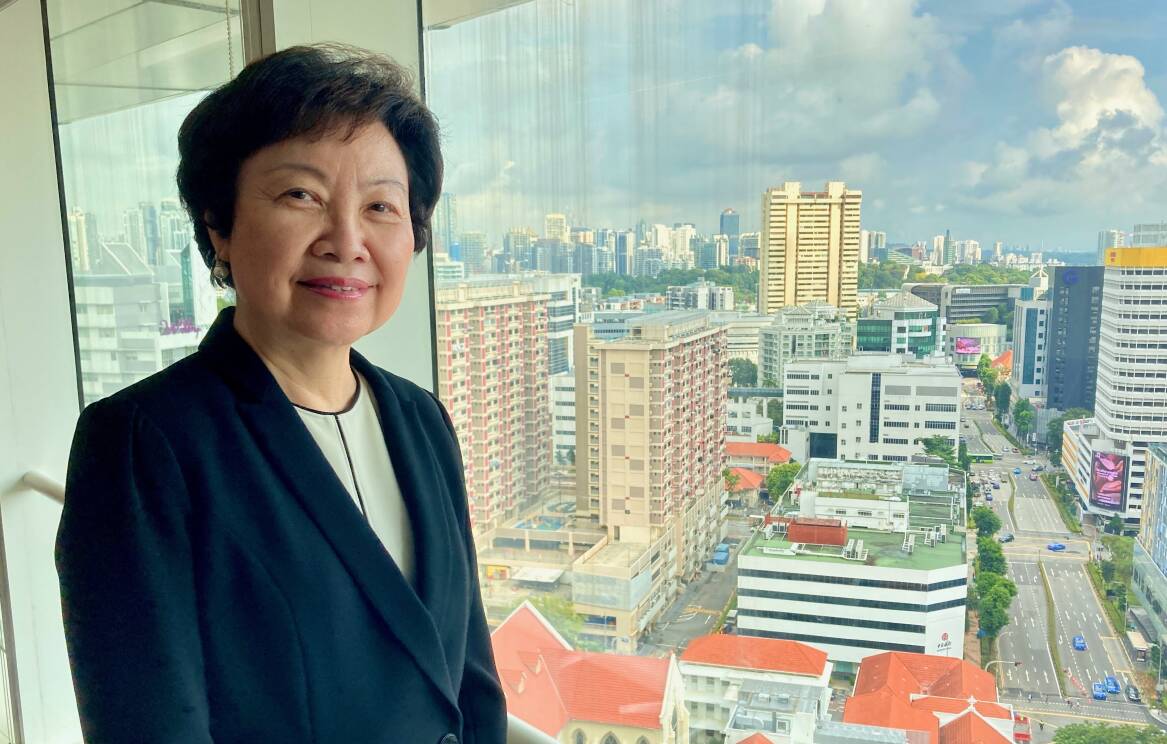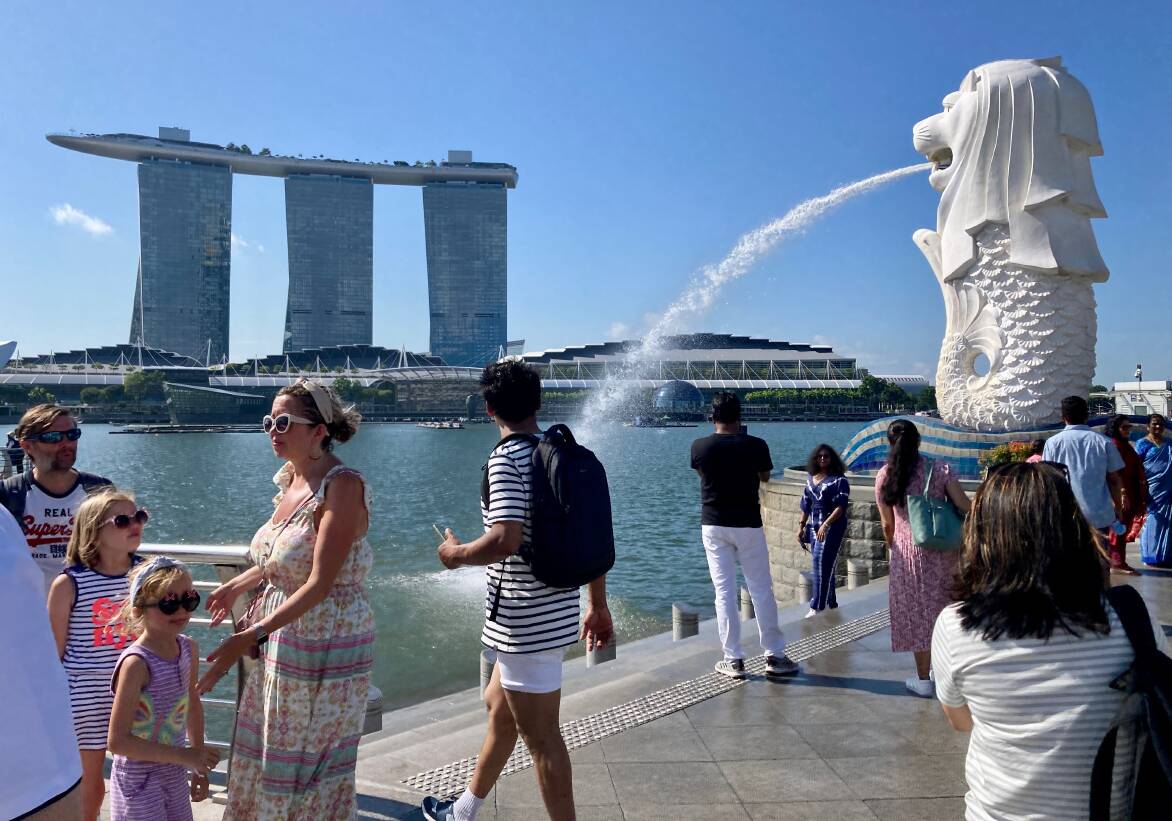
The Hunter must have a "strong exit strategy" from fossil fuels and focus on emerging economic drivers such as tourism and education, according to a leading figure in Singapore's rapid urban transformation.
Professor Cheong Koon Hean, a University of Newcastle architecture graduate under the Colombo Plan scholarship scheme in the 1970s, offered an outsider's view of the task facing the region in the coming decades.
Professor Cheong was chief executive of Singapore's Housing and Development Board from 2010 to 2020, overseeing the building and management of more than a million public housing flats.
She was also CEO of the city state's Urban Redevelopment Authority from 2004 to 2010, coordinating the development of the ultra-modern Marina Bay precinct.
Last year she was made chair of the Centre for Liveable Cities under Singapore's Ministry of National Development. She is also chair of the Lee Kuan Yew World City Prize nominating committee.
She has a masters in urban development planning from University College London and completed the advanced management program at Harvard Business School.
Speaking to the Newcastle Herald at the University of Newcastle's Singapore campus on the 13th floor of the city's National Library building, Professor Cheong said a clear plan for exiting the coal industry was essential to the Hunter's prosperity.
"The Newcastle I knew was very dependent on BHP. Many of the Australian cities or in the UK the same thing: coal and steel. And of course it has changed," she said.
"With sustainability issues, it's good to try to have a strong exit strategy from fossil fuels and non-sustainable types of energy.
"I sit on many panels talking about sustainability. Better transit out, have a plan.
"In fact, the other night we had dinner with the chairman of Shell. They have a huge sustainability program. They are disrupting themselves to end the very business they have been doing for hundreds of years, because, if they don't, they know they will be out of the game. So it's important."

Cities facing change also needed to "keep disrupting ourselves" and "asking what is the next business".
"You have the beautiful Hunter Valley. You should do more in tourism. You have beautiful beaches.
"Not enough people know about you."
Professor Cheong has been part of a planning system which does not face the same political pressures and multi-level complexity as exist in Australia.
The anti-gambling government agreed to a casino in the huge Marina Bay Sands hotel and shopping complex, but only after setting a $150 entrance fee for locals.
It also charges more than $100,000 for a 10-year "certificate of entitlement" to own a car, a measure designed to control road congestion.
The professor's last visit to Newcastle was almost 30 years ago, not long after the 1989 earthquake.
"The city was getting run down. I could see that. And then there was a big question of the rail line.
"I said you should stop the rail line earlier then connect the waterfront back to the old city, otherwise your city will just die. And you've done that. That's great.
"And then now with the campus going back to the city, it's about restoring and reviving the city."
She said the "real question" was how the region was going to "make a living going forward".
"Planning is really just an enabler to whatever you want for your city.
"I think there's great tourism value. Singaporeans love Australia. You just need to sell yourself.
"Sydney is too big. It's been there all the time, but not enough people know about the next-tier cities outside of Sydney, and you have to market and brand that."
Professor Cheong said the Hunter could learn from Singapore, which had positioned itself in a region with neighbouring Malaysia.
"Do you think it has to be a competition with Sydney or can they coexist?
"You must realise people have a limited time of how many days can they spend in Australia. Are you happy for them to spend three days in Sydney and two with you?
"That's what the southern state of Johor in Malaysia do. Everything they advertise about Johor, they put Singapore next to it because everybody flies into Singapore and people love the shopping and the modernity.
"Malaysia is just a bit of a more laid-back feel, and they have beautiful resorts, too.
"So we are happy they latch on to us because we cannot provide all those things. We position ourselves in the region. You have to create those synergies."
Newcastle Airport was important as a "catalyst" for broader economic benefits.
"The airport spins off a lot of other services: cargo, aircraft maintenance, for you that defence industry. Everything starts to build around that ecosystem."
She said education was another "driver" for Newcastle, but this was not without its challenges.
"Again, you have to fight with everybody. It's a very busy space. You've got Sydney, Melbourne and Brisbane, so how do you make yourself different, although the medical school is coming up quite well."
Singapore, with a population of more than 5 million, has developed with a series of cultural and ethnic precincts.
Professor Cheong, who received the keys to the city of Newcastle last month at a ceremony at the Australian High Commissioner's house, said Singapore had worked hard to retain economic and social activity in these districts as it grew and modernised.
"So, if you have Honeysuckle, if you don't bring the old one along, it's just going to draw everybody with it and it just dies. So the urban planning and strategy is very important.
"We were very mindful of character in urban planning. You come to facilitate the character; don't destroy it.
"People like authenticity, obviously, and people are so well travelled. There's no point replicating what somebody has. What have you got that they can't have?
"With Bugis district ... we introduced Singapore Management University, because it will bring in 3000 students.
"And a lot of the old buildings we restored, and we brought back the arts groups. It has a very eclectic, bohemian flavour that people like.
"As the city started to grow, at a cost, naturally, the gravity starts to shift and we switch strategy.
"Each zone has a very different feel.
"We're small, but the city is actually very interesting because you just go from one place to another.
"Marina Bay is the fancy new stuff, all the gleaming new buildings. And when you want that, you go there.
"But some people don't like that all the time. They love to explore all the old places.
"Everybody criticises the tourism board for being too kitsch and trying to do things that are not quite yourself, and I'd be very careful with that."
WHAT DO YOU THINK? We've made it a whole lot easier for you to have your say. Our new comment platform requires only one log-in to access articles and to join the discussion on the Newcastle Herald website. Find out how to register so you can enjoy civil, friendly and engaging discussions. Sign up for a subscription here.







